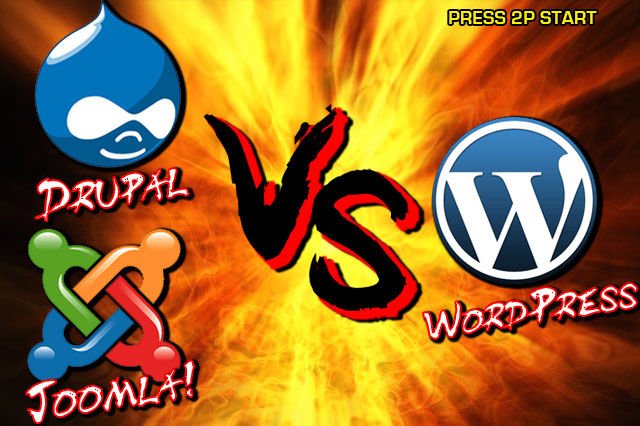Choosing the Right CMS: A Primer
 December 20, 2011 | By Ilfusion Team
December 20, 2011 | By Ilfusion Team
What is a CMS?
A CMS- content management system -is a piece of software that you install on your domain (for example, Ilfusion.com) that automatically builds a website based on the content you input. These are most commonly used for blogs but are often worked into larger and more complex websites.
Which is the Best?
We recently talked a bit about why we use WordPress for our clients’ websites (and our upcoming website redesign- check back January 1!), but there are other content management systems out there, and they have different strengths and weaknesses.
Drupal ( http://drupal.org ) is one of the oldest content management systems still in use, originally developed in 2001 and is sometimes the preferred choice for site owners with their own full-time developers. It can be used as a framework for complex applications, but is generally more difficult to implement and maintain. Among those who use Drupal are MTV (which uses WordPress for its MTV Newsroom site) and the White House. However, the complexity of Drupal’s programming means that there are fewer existing plugins, which means that making significant changes can take longer. As an agency, we use WordPress to offer our clients better turnaround time.
Another popular CMS is Joomla! ( http://www.joomla.org ), which is officially younger than Drupal (launched in 2005), but was originally a spinoff of the Mambo CMS, released in 2002. Where WordPress is designed to be a blog but can be expanded through add-ons, Joomla! builds a more complex website out of the box, with more user registration, membership, and community features. However, it’s a bit clunkier, and many of our clients don’t require all these features. Additionally, the back end of Joomla! is a bit more intimidating than WordPress’, there are fewer plugins and templates, and tougher programming challenges.
For a company that wants to devote serious funds and likely a dedicated employee to its website, either Drupal or Joomla! can be strong content management systems. For everyone else, though, we find that WordPress remains the best choice.

